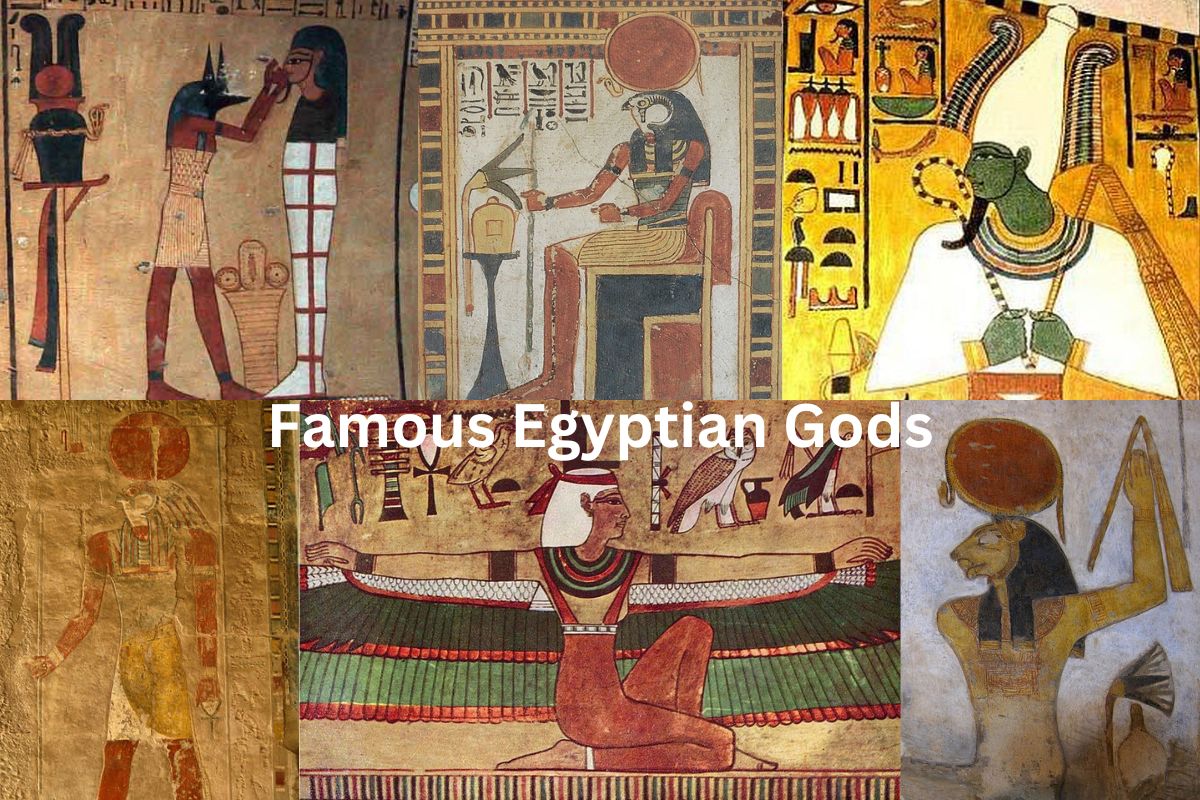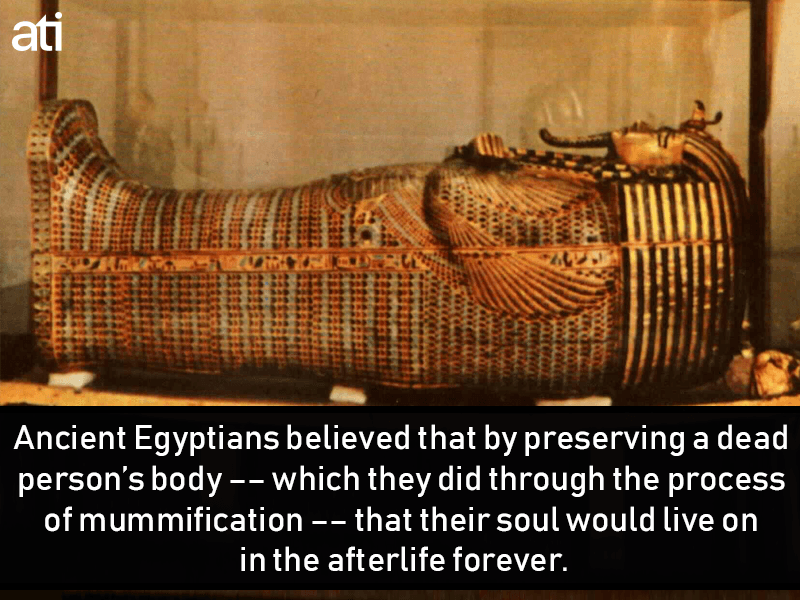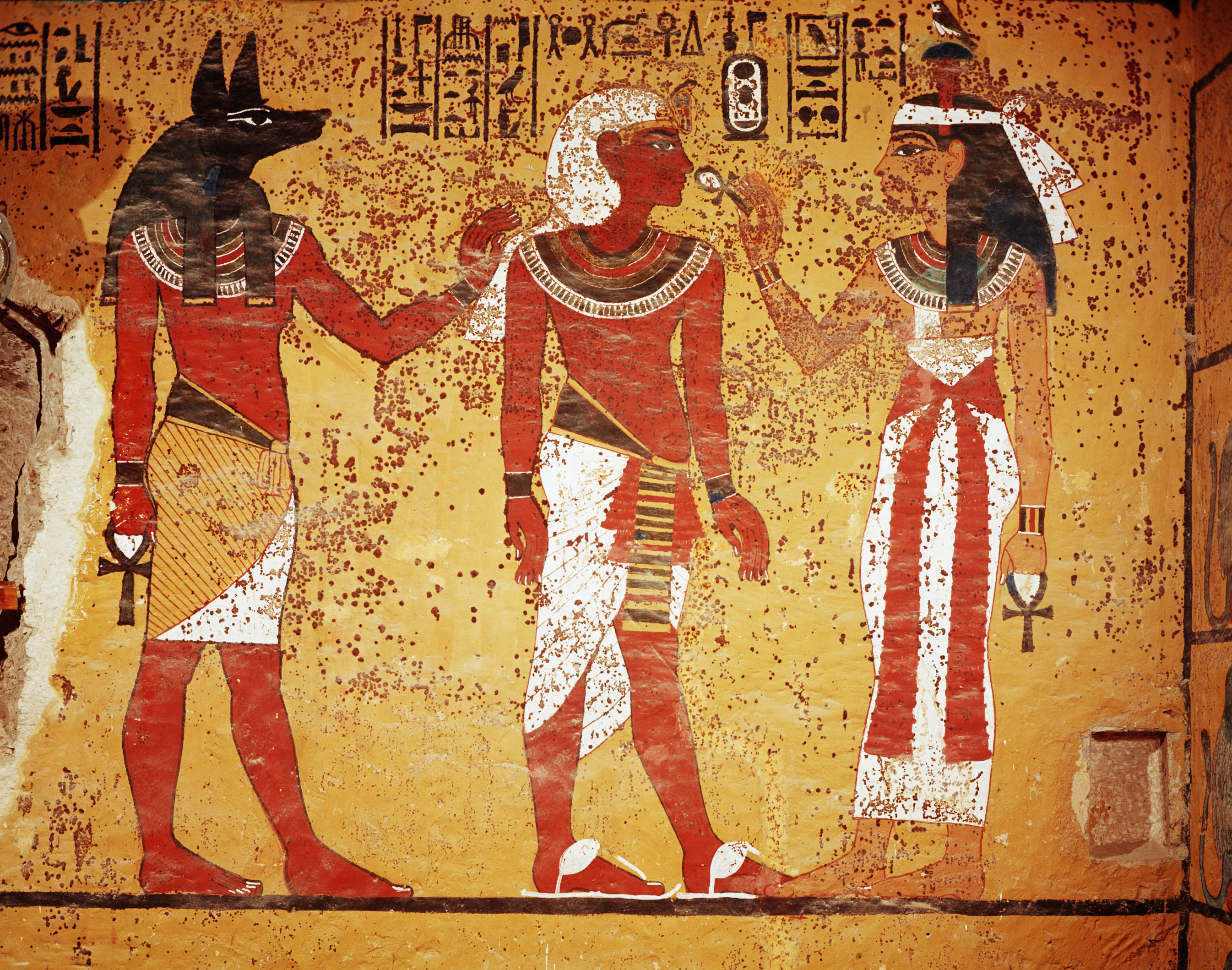The Egyptians Believed The Most Significant Aspects Of Life Were Rooted In Spirituality
When you dive into ancient Egyptian history, you'll quickly realize that their beliefs were deeply intertwined with every aspect of life. The Egyptians believed the most significant elements revolved around their connection to the divine, the afterlife, and the natural world. It wasn't just about surviving—it was about thriving spiritually and physically. Their culture was rich, complex, and full of mysteries that still captivate us today.
Think about it for a second. These folks weren’t just building pyramids for fun. They were constructing massive monuments because they truly believed in the importance of preparing for eternity. For them, life on Earth was just the beginning. The afterlife? That’s where the real adventure began. Their entire society was structured around this idea, from pharaohs to peasants.
But what exactly did the Egyptians believe was so important? Let’s break it down. It wasn’t just about gods and goddesses, though they had plenty of those. No, it was about how these beliefs shaped their daily lives, their rituals, and their ultimate goals. Stick around, and we’ll explore the fascinating world of ancient Egypt together.
Read also:Joshua Rush The Rising Star You Need To Know
Table of Contents
- Introduction to Egyptian Beliefs
- Spiritual Significance in Daily Life
- Afterlife Preparation: A Life Goal
- The Role of the Pharaoh in Religion
- Gods and Goddesses: Who’s Who?
- Rituals and Ceremonies: Everyday Practices
- Art and Architecture: Reflecting Beliefs
- The Natural World: A Sacred Playground
- Modern Influence: How Ancient Beliefs Inspire Today
- Conclusion: The Legacy of Egyptian Beliefs
Introduction to Egyptian Beliefs
Alright, let’s set the stage here. The Egyptians believed the most significant aspects of life were rooted in their connection to the gods, the afterlife, and the natural world. This wasn’t just some casual belief system; it was the foundation of their entire civilization. Every decision, every action, and every ritual was influenced by these core principles.
In ancient Egypt, spirituality wasn’t something you practiced once a week—it was woven into the fabric of daily life. From the moment they woke up to the moment they went to sleep, their actions were guided by their beliefs. Whether it was farming, trading, or even just going to the market, everything had a spiritual undertone.
Why Were These Beliefs So Important?
Well, for one, they provided structure and meaning to life. In a world without modern technology or science, the Egyptians looked to their gods for answers. They believed that by honoring the divine, they could ensure prosperity, protection, and a smooth transition to the afterlife.
And let’s not forget about the afterlife. This was a big deal. Like, really big. The Egyptians believed that life on Earth was just the first chapter. The real story began after death, and how you lived your life determined your fate in the next world. It’s no wonder they spent so much time and energy preparing for it.
Spiritual Significance in Daily Life
Now, let’s talk about how these beliefs influenced everyday life. The Egyptians believed the most significant moments were tied to their spiritual practices. For example, every morning, they would offer prayers to the sun god Ra, thanking him for bringing light and warmth to the world. This wasn’t just a quick ritual; it was a deep expression of gratitude and reverence.
Even something as simple as eating a meal had spiritual significance. Food was seen as a gift from the gods, and it was often shared with family and friends as a way of strengthening community bonds. The Egyptians believed that by sharing food, they were also sharing blessings.
Read also:Discover The Hidden Gems At Ocean State Job Lot
Key Rituals in Daily Life
- Offering prayers to the gods at sunrise
- Participating in festivals and celebrations
- Performing purification rituals before entering sacred spaces
- Offering food and drink to ancestors
These rituals weren’t just for the elite; they were practiced by everyone, from pharaohs to farmers. It was a way of connecting with the divine and ensuring harmony in the universe.
Afterlife Preparation: A Life Goal
When you think about the Egyptians, one of the first things that comes to mind is their obsession with the afterlife. And let’s be real—they weren’t just mildly interested. The afterlife was a major focus of their lives. They believed the most significant preparation they could make was ensuring a safe and prosperous journey to the next world.
This is where things like mummification and tomb construction come into play. Mummification was a complex process designed to preserve the body for the afterlife. The Egyptians believed that the soul needed a physical form to continue its journey, so preserving the body was crucial.
Steps in Afterlife Preparation
- Mummification: Preserving the body for eternity
- Building tombs: Creating a safe haven for the soul
- Writing spells and prayers: Guiding the soul through the underworld
- Providing grave goods: Ensuring comfort and prosperity in the afterlife
These preparations weren’t just for the wealthy. Even ordinary people took steps to ensure their afterlife was as comfortable as possible. It was a collective effort, and everyone played a role in maintaining the balance between the living and the dead.
The Role of the Pharaoh in Religion
Speaking of collective efforts, let’s talk about the pharaoh. The Egyptians believed the most significant figure in their society was the pharaoh, who was seen as both a political leader and a divine intermediary. The pharaoh wasn’t just some guy running the show; he (or sometimes she) was considered a living god.
This divine status gave the pharaoh immense power and responsibility. It was their job to maintain Ma’at, the concept of order and balance in the universe. They did this by performing rituals, building temples, and ensuring that the gods were properly honored.
Key Responsibilities of the Pharaoh
- Maintaining Ma’at: Ensuring cosmic order
- Building temples: Creating spaces for worship
- Performing rituals: Communicating with the gods
- Leading military campaigns: Protecting the kingdom
The pharaoh’s role was crucial in maintaining the spiritual and political stability of ancient Egypt. Without them, the entire system would have collapsed.
Gods and Goddesses: Who’s Who?
Alright, let’s meet the cast of characters. The Egyptians believed the most significant forces in the universe were represented by their gods and goddesses. These deities weren’t just random figures; they were deeply connected to every aspect of life.
For example, Ra was the sun god, responsible for bringing light and warmth to the world. Osiris was the god of the afterlife, guiding souls through the underworld. Isis was the goddess of magic and motherhood, offering protection and wisdom to her followers.
Some Key Gods and Goddesses
- Ra: The sun god
- Osiris: The god of the afterlife
- Isis: The goddess of magic and motherhood
- Horus: The sky god and protector of the pharaoh
- Anubis: The god of mummification and the underworld
Each deity had their own domain and responsibilities, and they were often depicted in art and literature. These gods and goddesses were more than just symbols—they were active participants in the lives of the Egyptians.
Rituals and Ceremonies: Everyday Practices
Now, let’s dive into the nitty-gritty of daily life. The Egyptians believed the most significant way to connect with the divine was through rituals and ceremonies. These practices weren’t just for special occasions; they were a regular part of life.
From morning prayers to evening offerings, the Egyptians were constantly engaging with their gods. These rituals were designed to maintain balance and harmony in the universe. They were also a way of expressing gratitude and seeking guidance.
Types of Rituals and Ceremonies
- Offering rituals: Providing food, drink, and incense to the gods
- Purification rituals: Cleansing the body and spirit before entering sacred spaces
- Festivals: Celebrating important events in the agricultural and religious calendar
- Funerary rituals: Preparing the deceased for the afterlife
These rituals were performed by priests, pharaohs, and ordinary people alike. They were a way of ensuring that the gods were pleased and that the universe remained in balance.
Art and Architecture: Reflecting Beliefs
When you look at ancient Egyptian art and architecture, you’ll notice that it’s deeply rooted in their beliefs. The Egyptians believed the most significant expressions of their spirituality were found in their creations. From the pyramids to the temples, every structure was designed to honor the gods and ensure a prosperous afterlife.
Take the pyramids, for example. These massive structures weren’t just tombs; they were gateways to the afterlife. The Egyptians believed that the pharaoh’s soul needed a way to ascend to the heavens, and the pyramid provided that path.
Key Features of Egyptian Art and Architecture
- Hieroglyphics: Writing that told stories and recorded history
- Temples: Sacred spaces for worship and ritual
- Tombs: Final resting places for the dead
- Sculptures: Depictions of gods, pharaohs, and everyday life
These artistic and architectural achievements were more than just decorations; they were functional expressions of belief. They were designed to honor the gods, protect the dead, and ensure the continuation of life.
The Natural World: A Sacred Playground
Finally, let’s talk about the natural world. The Egyptians believed the most significant elements of their environment were sacred. From the Nile River to the desert sands, every aspect of nature was seen as a gift from the gods.
The Nile, in particular, was considered a lifeline. It provided water, fertile soil, and transportation. The Egyptians believed that the river was a divine creation, and they honored it with festivals and offerings. Without the Nile, their civilization wouldn’t have thrived.
Key Natural Elements in Egyptian Beliefs
- The Nile: The source of life and prosperity
- The sun: A symbol of power and renewal
- The desert: A place of mystery and danger
- The stars: Guides for navigation and agriculture
These natural elements were woven into the fabric of Egyptian spirituality, influencing their beliefs and practices. They saw the world around them as a sacred playground, full of opportunities for connection and growth.
Modern Influence: How Ancient Beliefs Inspire Today
So, how do these ancient beliefs influence us today? The Egyptians believed the most significant lessons they taught were about the importance of spirituality, community, and the afterlife. These ideas continue to inspire people around the world.
From modern religions to pop culture, the legacy of ancient Egypt is everywhere. We see it in movies, books, and even video games. The fascination with mummies, pyramids, and gods continues to captivate our imaginations.
Ways Ancient Egyptian Beliefs Influence Modern Life
- Religious practices: Many modern religions incorporate elements of ancient spirituality
- Art and design: Egyptian motifs are still popular in fashion and architecture
- Education: The study of ancient Egypt continues to be a popular subject in schools
- Pop culture: Movies, books, and games often draw inspiration from Egyptian mythology
These influences remind us that the beliefs of ancient Egypt are still relevant today. They offer a glimpse into a world where spirituality and community were at the heart of everything.
Conclusion: The Legacy of Egyptian Beliefs


